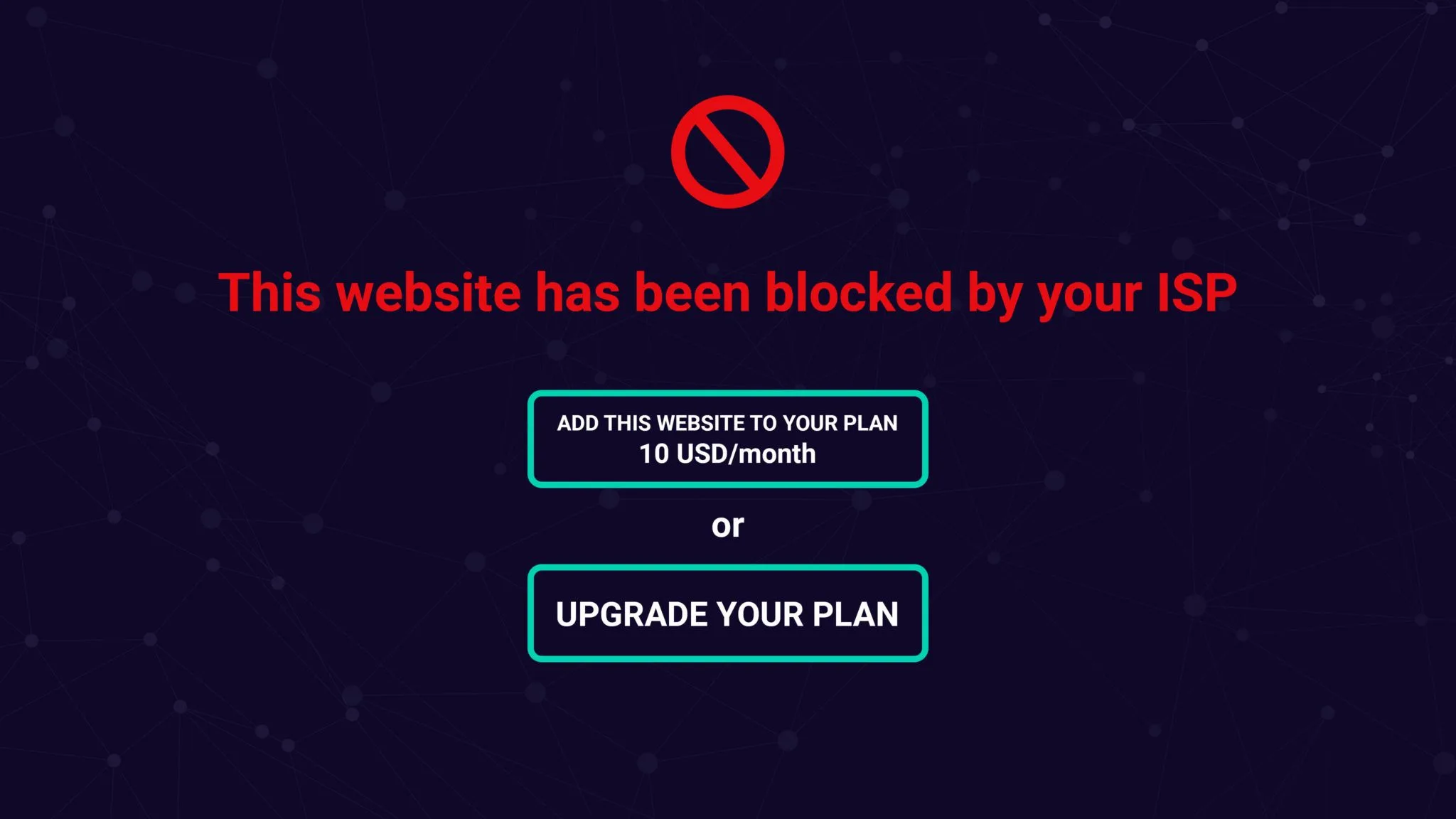What the Death of Net Neutrality Means for Digital Marketing
- Content Marketing
- Culture
- SEO
- Social Media Marketing

It’s here. The day has come, the plot has been dug out, and net neutrality has been laid to rest. That’s right — net neutrality is officially a thing of the past. On June 11, 2018, net neutrality rules were repealed despite the fact that 83% of Americans didn’t approve of it.
So…now what? What is net neutrality and why did we have it in the first place? What makes it so important and how does the end of net neutrality affect the general population and the world of digital marketing? We’re taking a deep dive into net neutrality to get a better picture of what this big change means for our future.
What is Net Neutrality?
Also known as “open internet,” net neutrality is the standard that Internet Service Providers (ISPs) follow by providing consumers with access and free range to all content, apps, and websites on the internet. Net neutrality prohibits the favoring and/or blocking of one website or product over another.
There’s no denying that technology rules a majority of our lives. Have a question? Google it. Want to buy a product? Ask Siri or Alexa to search for it for you and add it to your shopping cart. The internet has been free for all to use. All websites were accessible and you could easily look up or navigate to any page. But now? Net neutrality is dead and the internet will have more regulations.
Why is Net Neutrality Dead?
The Federal Communications Commission (FCC) has been against net neutrality for some time now. Despite reluctance from many politicians and the general public, the FCC repealed net neutrality in order to get rid of “unnecessary regulations” that were previously set in the Open Internet Order of 2015 Act during the Obama-era. In its place, the Restoring Internet Freedom Order was initiated.
The Restoring Internet Freedom Order was designed by the FCC to protect the open internet while promoting a better, faster, and cheaper internet for consumers. However, contrary to its name, the order has ended public utility regulation and handed it over to large, money-driven corporations.
Net Neutrality vs. Non-Neutrality
Let’s get into the thick of it, shall we? Every story has two sides and we wouldn’t be giving this subject justice if we didn’t map out what net neutrality has done for us up until now, and what will be different without it.
With Net Neutrality
Versions of net neutrality have existed since the conception of the internet. Looking back, we can identify how net neutrality has affected the way our country works.
- High Competition — Internet neutrality created competition between all types of businesses, both big and small.
- Business Equality — Net neutrality promoted an equal marketplace so small businesses had a fighting chance against bigger businesses.
- More Innovation —There was always the urge to produce the next best thing, so companies of all sizes and types worked as hard as they could, helping to amplify innovation and growth.
- Minimal Start-Up Costs — Neutrality helped to keep prices low for both start-up businesses and consumers. If you were a new business owner looking to create an online store, you didn’t have much standing in your way.
- Low Consumer Pricing — Customers reaped the benefit of companies competing for business since each company would try to provide the lowest prices for products or services. Some companies would even offer free information, resources, and items to generate traffic and pull in leads.
Without Net Neutrality
We aren’t psychics and we can’t predict exactly what will happen now that net neutrality is gone. However, we can speculate on some of the situations that may arise now that the internet is more regulated.

- Required Payments— ISPs will be able to take control over the internet by requiring a payment from website owners and users looking to receive high internet speeds.
- Bandwidth Throttling — ISPs will be able to throttle bandwidth (purposely slow down and speed up internet services) and favor large companies that pay high premiums over smaller, competitive companies with small budgets. The high speeds, also called “fast lanes,” will allow certain websites to load faster than others. That’s extremely important since it’s been reported that just about half of consumers expect pages to load within 2 seconds, and 40% will leave a website if it takes longer than 3 seconds to load.
- Website Blocking — ISPs may begin blocking smaller or competitive sites from users just because they favor one over the other.
- Less Competition — With net neutrality no longer helping to push for competitive pricing, the cost of goods and services will increase. If websites are being required to pay high premiums to have their site found, they will need to gain that revenue from another source, such as their profits from selling to consumers.
- High Consumer Pricing — ISPs may require the general public to pay for higher-quality apps, large data plans, and fast streaming speeds. And don’t forget about pesky fees and taxes! They’ll increase as well.
How Non-Neutrality Will Change the Marketing Game
So, what does the end of net neutrality mean for marketers? Originally, net neutrality created a high demand for internet marketing services because they focused on increasing organic traffic. Without net neutrality, competition between businesses may be uneven. This means the use of high-quality digital marketing services will be more important than ever before.
If ISPs favor large companies that pay high premiums and the internet is flooded with those websites, superior internet marketing efforts will be necessary to keep other business websites relevant. Marketers will need to invest more time, energy, and money into the channels they can control or manipulate. In addition, marketing companies might have to charge more for their services if they want to guarantee that clients will be placed in the fast lane.
With all of that said, non-neutrality will not change how search engines such as Google or Bing display results. For example, if someone is searching for a burger joint, Search Engine Results Pages (SERPs) will still show smaller restaurants that serve burgers first because they’re local.
Non-Neutrality & Content Marketing
Content marketers will have a harder time getting their content seen by their targeted audience. Unfortunately, if a website isn’t paying premium fees, it may be subject to slower load times and page blocking, which would keep users from visiting the site.
With that in mind, creating good, helpful, and insightful content will be vital for websites to be successful. If you want a shot at bringing in customers and keeping them coming back, you need to grab them from the get-go. Entice them with your content and make sure they know that your website is one they’ll want to keep coming back to for information.
Non-Neutrality & SEO
Net neutrality allowed websites to be ranked by content, keywords, and effective use of linking. With non-neutrality, SEO will be affected by content marketing struggles. Traffic may be limited at times due to ISPs blocking specific sites from potential users. Website blocking could also affect external linking since some of your users may not be able to access external websites.
The more satisfied users that visit your site, the higher your search ranking will be. Site speed, design, and ease of navigation also play a significant role in overall success. With the help of SEO tactics and strategies, you can ensure your website is found by more users despite any difficulties that may arise due to non-neutrality.
Non-Neutrality & Social Media
While most social platforms don’t currently charge you to use their services, ISPs may charge you to access them on devices or restrict the use of competitive apps. For instance, in Portugal, a country without net neutrality, users have to buy packages in order to access social media platforms.
Since users may be charged to view their own social accounts, some may stray away from social media altogether. Account followings could shrink and the cost to advertise on social media platforms would increase. However, with the aid of social media experts, your social media accounts can stay afloat and relevant to users that do stick with social platforms.
What Will Happen Now?
It will take a bit of time for the effects of non-neutrality to be felt across the U.S. However, the fight for net neutrality is far from over. Many Americans are still outraged by the prospect of being stripped of their internet freedom. In hopes of changing the final outcome, individuals opposed to non-neutrality are encouraged to make their voice heard by visiting Battle For The Net’s web page. There, you can easily write to Congress and find other resources to help in the fight to save net neutrality.
Do I Still Need Digital Marketing?
Yes! Actually, you need it more now than you did when net neutrality was alive. Impeccable content marketing, SEO, and social media skills will be necessary to ensure your website is the best it can possibly be. Digital marketing will push your business to the top, making your website the one users want to click on and navigate to. Become as successful as possible by placing content marketing, SEO, and social media specialists in the driver’s seat when it comes to your online presence.
What’s your take on net neutrality and the FCC’s Restoring Internet Freedom Order? Let us know your thoughts.
 By Kelly H
By Kelly H  Sierra
Sierra